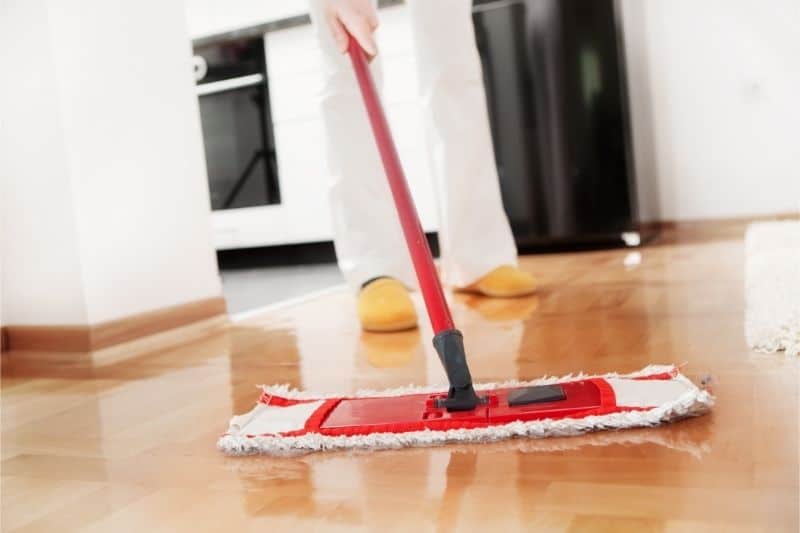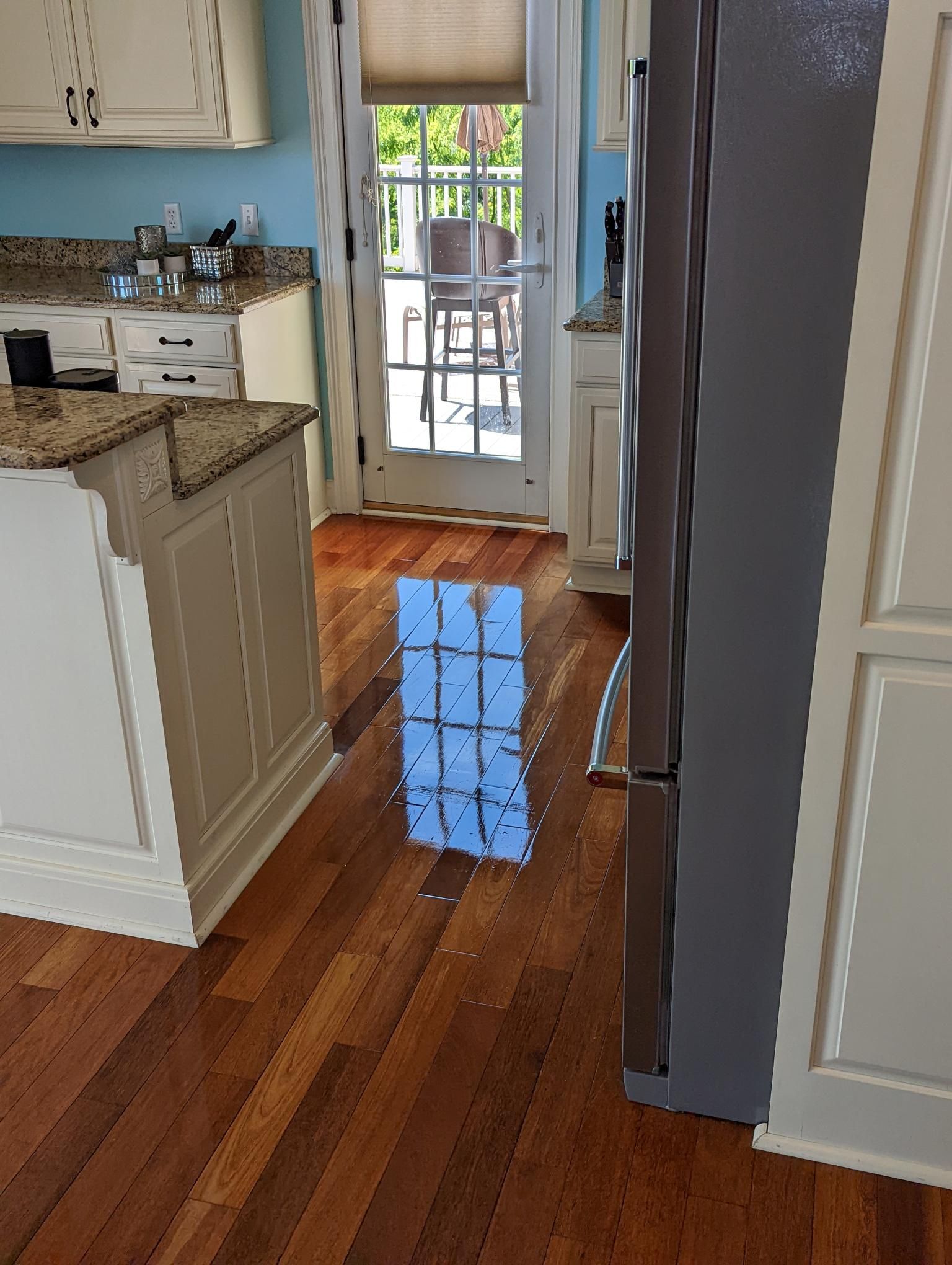Have you ever stared at a stubborn stain on your beautiful hardwood floor and thought, “Bleach will take care of this!”? It’s a tempting thought, especially when faced with a tough mess. But before you grab that bottle of bleach and start scrubbing, it’s important to understand the potential consequences. While bleach can be a powerful cleaning agent, it’s not always the best solution for your precious hardwood floors.

Image: viewfloor.co
The fact is, directly mopping hardwood floors with bleach is generally not recommended. While bleach can kill bacteria and remove stains effectively, it can also damage the delicate finish of your hardwood floors, leaving them dull, discolored, and prone to future damage. So, what should you do? Let’s dive into the science, the risks, and the alternatives to ensure your floors are sparkling clean while staying protected.
Understanding Hardwood Floors: A Delicate Balance
Hardwood floors are a beautiful and durable investment, but they’re also delicate. Each plank has a protective finish that seals the wood and prevents staining, scratching, and moisture absorption. These finishes, typically polyurethane or varnish, are designed to be resilient but can be affected by harsh chemicals like bleach.
The Dangers of Bleach on Hardwood Floors
Here’s the breakdown of why bleach is not a good choice for your hardwood floors:
1. Damage to the Finish:
Bleach is a powerful oxidizing agent, meaning it can break down and weaken the protective finish on your hardwood floors. This can lead to the finish becoming dull, cloudy, or even peeling off, leaving the wood exposed and vulnerable.

Image: www.zerorez.com
2. Discoloration:
Bleach can also cause discoloration, especially on darker wood species. It can leave unsightly white streaks or patches that can be difficult to remove.
3. Weakening the Wood:
Bleach can penetrate the wood itself and weaken its structure. This can make the floor more susceptible to scratches, dents, and warping over time.
While it might seem tempting to use bleach to tackle a stubborn stain, the risks far outweigh the benefits. It’s like using a hammer to fix a delicate watch – it might work in the short term, but the damage will be far more significant than the initial problem.
Alternative Cleaning Solutions for Hardwood Floors
Don’t despair! There are many safe and effective alternatives to bleach for cleaning your hardwood floors. Here are some of the best options:
1. Water and Dish Soap:
A simple solution of warm water and a few drops of mild dish soap is often enough for everyday cleaning. This combination effectively cleans dirt and grime while being gentle on the finish.
2. Vinegar:
White vinegar is a natural disinfectant that can also loosen grime and remove sticky residue. Mix a solution of equal parts water and vinegar in a spray bottle, then apply it to your floor and wipe clean.
3. Baking Soda:
Baking soda is a mild abrasive that can be used to scrub away stubborn stains. Make a paste by mixing baking soda with a small amount of water, apply it to the stain, let it sit for a few minutes, then scrub gently with a soft brush.
4. Wood Floor Cleaner:
For tougher messes or regular cleaning, consider using a wood floor cleaner specifically designed for hardwood floors. These cleaners are formulated to be gentle on the finish while effectively removing dirt, grime, and even sticky substances like wax or paint.
Tips for Keeping Your Hardwood Floors Clean and Beautiful
Beyond understanding which cleaners to use, here are some additional tips to maintain your hardwood floors:
1. Regular Cleaning:
Sweep or vacuum your floors regularly to remove dirt and debris that can scratch the finish. Mopping should be done less frequently, as excessive moisture can also damage the floor.
2. Protect from Moisture:
Wipe up spills immediately and avoid allowing water to stand on your floors for prolonged periods. Consider using rugs in high-traffic areas to absorb moisture and prevent wear and tear from shoes.
3. Use Floor Protectors:
You can use felt pads on furniture legs to prevent scratches. Additionally, consider using a floor protector like a wax or sealant to help resist water damage and protect the finish.
4. Professional Cleaning:
For deeper cleaning, consider having your hardwood floors professionally cleaned every few years. A professional cleaner will use specialized equipment and cleaning solutions to restore your floor’s shine and protect it from damage.
Can I Mop Hardwood Floors With Bleach
Conclusion: The Right Approach to Hardwood Floor Care
Remember, your hardwood floors are a valuable asset to your home, and proper care is essential to maintain their beauty and longevity. While bleach might seem like a quick fix for stains, it can cause irreversible damage to your floor’s finish. Opt for gentler cleaning solutions like water and dish soap, vinegar, or baking soda, and remember to use them sparingly and with care. By following these tips and choosing the right cleaning methods, you can enjoy the beauty of your hardwood floors for years to come. And if you still have questions, don’t hesitate to consult a professional floor care expert for personalized advice.





